第1章 I
I think that every man ought to work for his living, without exception, and that when he has once avouched his willingness to work, society should provide him with work and warrant him a living. I do not think any man ought to live by an art. A man's art should be his privilege, when he has proven his fitness to exercise it, and has otherwise earned his daily bread; and its results should be free to all. There is an instinctive sense of this, even in the midst of the grotesque confusion of our economic being; people feel that there is something profane, something impious, in taking money for a picture, or a poem, or a statue. Most of all, the artist himself feels this. He puts on a bold front with the world, to be sure, and brazens it out as Business; but he knows very well that there is something false and vulgar in it; and that the work which cannot be truly priced in money cannot be truly paid in money. He can, of course, say that the priest takes money for reading the marriage service, for christening the new-born babe, and for saying the last office for the dead; that the physician sells healing; that justice itself is paid for; and that he is merely a party to the thing that is and must be. He can say that, as the thing is, unless he sells his art he cannot live, that society will leave him to starve if he does not hit its fancy in a picture, or a poem, or a statue;and all this is bitterly true. He is, and he must be, only too glad if there is a market for his wares. Without a market for his wares he must perish, or turn to making something that will sell better than pictures, or poems, or statues. All the same, the sin and the shame remain, and the averted eye sees them still, with its inward vision. Many will make believe otherwise, but I would rather not make believe otherwise; and in trying to write of Literature as Business I am tempted to begin by saying that Business is the opprobrium of Literature.